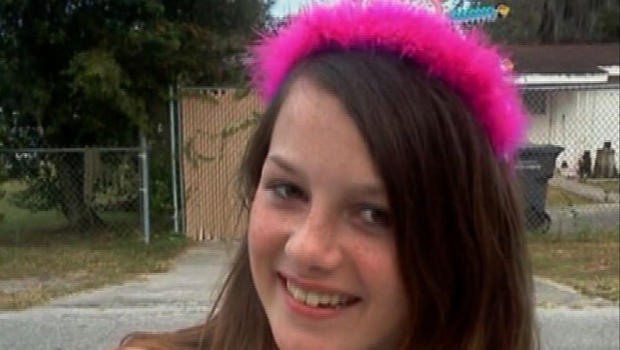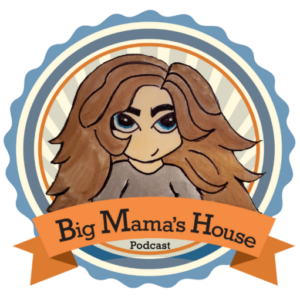
Photo Credit: CBS News
Another day, another cyberbullying, online safety tragedy. This one happened early September 2013 when a beautiful 12 year old – Rebecca Sedwick, died by suicide in Lakeland Florida. She had been the victim of relentless IRL (in real life) and online cyberbullying.
Apparently she dated the wrong girl’s boyfriend. Fourteen year old Guadalupe Shaw bullied Rebecca relentlessly along with FOURTEEN other girls. That’s right, Shaw convinced fourteen other girls to team up against Rebecca. If the mob didn’t comply, they would face the wrath of being bullied themselves. Nice, huh?
The online platforms of choice were: Facebook, Kik, and Ask.fm. If you are a frequent reader of this blog you already know how I feel about Ask.fm. And it bears repeating now: Your child (regardless of age) should never, never, never, never have an Ask.fm profile – ever. Is that clear enough for you?
Consequences? What are those?
And here’s something else which is utterly shocking to me. After Rebecca committed suicide (by jumping off a concrete silo), and after Guadalupe (the alleged ringleader) posted on her Facebook page: “Yes ik [I know] I bullied Rebecca and she killed her self but IDGAF [I don’t give a (f***)], and after Guadalupe was questioned by the police and after she readily admitted to bullying Rebecca….Guadalupe’s parents allowed Guadalupe to keep her phone. Huh?
Polk County Sherrif Judd said:
“I’m aggravated that the parents are not doing what parents should do: after she is questioned and involved in this, why does she even have a device?” Sheriff Judd said. “Parents, who instead of taking that device and smashing it into a thousand pieces in front of that child, say her account was hacked.”
Trust, verify (rinse, repeat)
Let me speak very plainly (!!):
- If as a parent, you are not actively checking which platforms, people, games, and content your child is involved with – you are complicit in the outcome
- If as a parent, you do not create and deliver consequences consistently to your children – you are complicit in the outcome
- If as a parent, you do not educate yourself in HOW to help your child stay safe as well as HOW to prevent brewing your own little Frankenstein-bully – you are complicit in the outcome
- If you are expecting gaming companies and media companies to do your parenting job for you – you are complicit in the outcome
How young is too young?
If you have recently spent any time around a 14 or 15 year old, you will quickly come to the conclusion that young teens are merely taller, hairier 3 year olds. They bounce from topic to topic and app to app looking to engage, or hide – or whatever their impulse du jour is. And this is developmentally appropriate. They are supposed to act like tall, hairy 3 year olds.
Children are still children until they are well into their high school years. They do not have the physical/cognitive/emotional/social maturity which 24-7 connectivity demands. Those skills develop with time and experience.
But it’s hard – blah blah
I recognize that it’s hard to be a parent in the 21st century. And there’s a lot to learn – all the time. I teach Internet Safety for a living and I am constantly learning the new and nauseating ways children get themselves into trouble. But you have *no choice* as a parent.
Actually that’s not true; you actually have two choices: 1. Don’t give a device to your child or 2. Give a device to your child and engage in the education and monitoring process.
There is no third choice. Sorry.
If you’ve seen any of my live or online Internet Safety for Families presentations, you already know that I tend to lose my mind a little when talking about the “Gonna Be” posts. This is not a technical term, just an off-hand comment which stuck. Feel free to bandy it about at cocktail parties…
“Gonna-Be” posting quite simply is where you tell the entire world where you are GOING TO BE (and also where you currently are). Think about it for a moment. In your eternal zeal to make the rest of us on Facebook jealous about your trip to Thailand (and believe me, I hate you for it) you post the following:
- OOOOO just made reservations for our “around the world” trip beginning in Thailand #jealous? We leave in 10 days
- Five days left for Thailand and I’m not sure….flip flops? wedges? BOTH!! #jealous?
- Today’s the day! Airport limo just pulled up…WOOT WOOT #jealous?
- Betty Smith just checked in at JFK Airport Gate 25
- Got my Thai-on – here’s a photo of my feet to prove it because I’m really really insecure and need to prove it #jealous?
Good golly – do you all realize that the scenario above is played out ad nauseum by adults *and* kids on Facebook, Twitter, Instagram?
Why are “Gonna-Be” Posts Dangerous?
I’m consistently surprised by the surprised faces and reactions to this subject. Tweens and teens “gonna be” post all the time about sporting events, social events, and pretty much every aspect of their lives; on platforms which are asynchronous (asynchronous platforms do not require an agreement to connect – anyone can follow you) which means anyone and everyone might be listening.
Vacation “gonna bes” reveal way too much information:
- Give potential robbers a timeline (10 days left, 5 days left, check-in at the airport)
- Give potential robbers an idea of what you might own based on what sort of vacation you’re taking
- May alert potential sexual predators to the fact that your children are with a sitter (ie “can’t wait for our 2nd honeymoon without the rugrats – YAY”)
- Lets neighborhood kids know that your house will be empty – which is of course, the perfect place for a party. But don’t worry you’ll get to see all of the photos of the wreckage posted online after the fact.
Kid’s “gonna be” posts are unsafe for far more sinister reasons:
- Photo gonna-bes generally show your sons and daughters getting dressed for an event – I now know what you look like and how you’re dressed
- Depending on the social media platform – the Exif metadata is reserved on the photo your child has just put up, which provides the exact latitude and longitude of where the photo was taken. Great information for a predator, especially if the location is the child’s: home, school, best friend’s house, or soccer field
- Your children give explicit details: time of the game, name of the opponent, their jersey number, and a link to the location of the field. If someone wants to do your child harm – they have been provided with a literal road map.
- Your children ask for a ride home on social media: “I’m stuck at field 6 someone come get me”. Seriously?
- Cyberbullies (aka classmates) now know precisely where your child will be, providing another opportunity for IRL (in real life) harassment.
Killjoy Revisited
You don’t have to stop posting photos or attempting to engender jealousy and hatred among your online “friends” – just do it after the fact:
- post the quintessential vacation photo of your feet when you come home
- give the score of the soccer game after it’s over
- regale us with the finer points of that confusing Thai phrase where you meant to say ‘Thank you I’m done” but really said “Please eat my elephant feet” (giggle giggle barf barf)
Bottom Line
You cannot answer for every single Facebook friend, Twitter/Instagram follower you have. Most kids have no idea who 30% of those followers are. As parents we need to lead by example. If your children see you creating “gonna be” posts, then they will too.
Parents: take advantage of this teachable moment and explain to your kids just why you are NOT going to post that selfie. Unless of course you aren’t really emotionally attached to that expensive wide-screen television waiting back in your living room or, for that matter, your peace of mind.
In which case, rock on doofus.
 Have you heard the term: “Don’t feed the trolls”? Trolls are online bullies who generally show themselves in the comments section of a website or blog. But they can just as easily be found within your own social media profiles. In fact, younger users of social media may have a large percentage of trolls within their own “friends” and “followers”.
Have you heard the term: “Don’t feed the trolls”? Trolls are online bullies who generally show themselves in the comments section of a website or blog. But they can just as easily be found within your own social media profiles. In fact, younger users of social media may have a large percentage of trolls within their own “friends” and “followers”.
In a Cleveland, Ohio suburb a mother is mourning the loss of her teenage son. He was stabbed to death right outside his home after a feud over a girl which the mother says escalated via Facebook. The suspected murderer made specific threats on Facebook that he was “coming to get” the young man.
If what this mother says turns out to be true, then this is a case which involves cyberbullying. The interesting aspect is the chosen platform – Facebook. Facebook’s connection structure is synchronous. This means that in order for you and I to be “friends” on Facebook we have to agree. You send me a “friend request” and I agree. If we do not agree, there is no connection.
Very often I’m asked what parents should do when cyberbullying arrives in their lives. Using this heartbreaking situation as an example:
- Your children should only ‘friend’ those people who mom/dad know IRL (in real life)
If YOU do not know the “friend”, remove the connection - Explain to your children the risks of TMI (too much information)
You give potential trolls ammunition to use against you (examples: problems at home, issues with school, illnesses, family deaths, personally identifying data, etc) - If the cyberbullying is obvious and targeted – DO NOT FEED THE TROLLS
Tell your children to NOT answer back when threats are made – they should tell an adult and step away - BLOCK the cyberbully from your profile if possible
Some social media platforms do not make “blocking possible” -but Facebook does - Your child should take a break from social media for a significant amount of time – a week or two
- Report threats to local police and the school where appropriate
I have no idea if these tips would have helped this child, and I don’t know this family personally. All I know is that a child is dead and another one will likely spend a very, very long time in jail (which is appropriate). This tragedy might very well have occurred anyhow outside of the realm of social. In this particular case Facebook seems to have been a vehicle for communication of a threat and a continued festering of anger and cyberbullying.
Parents: have these conversations with your children so that they will recognize a threat when they see it or hear it.
